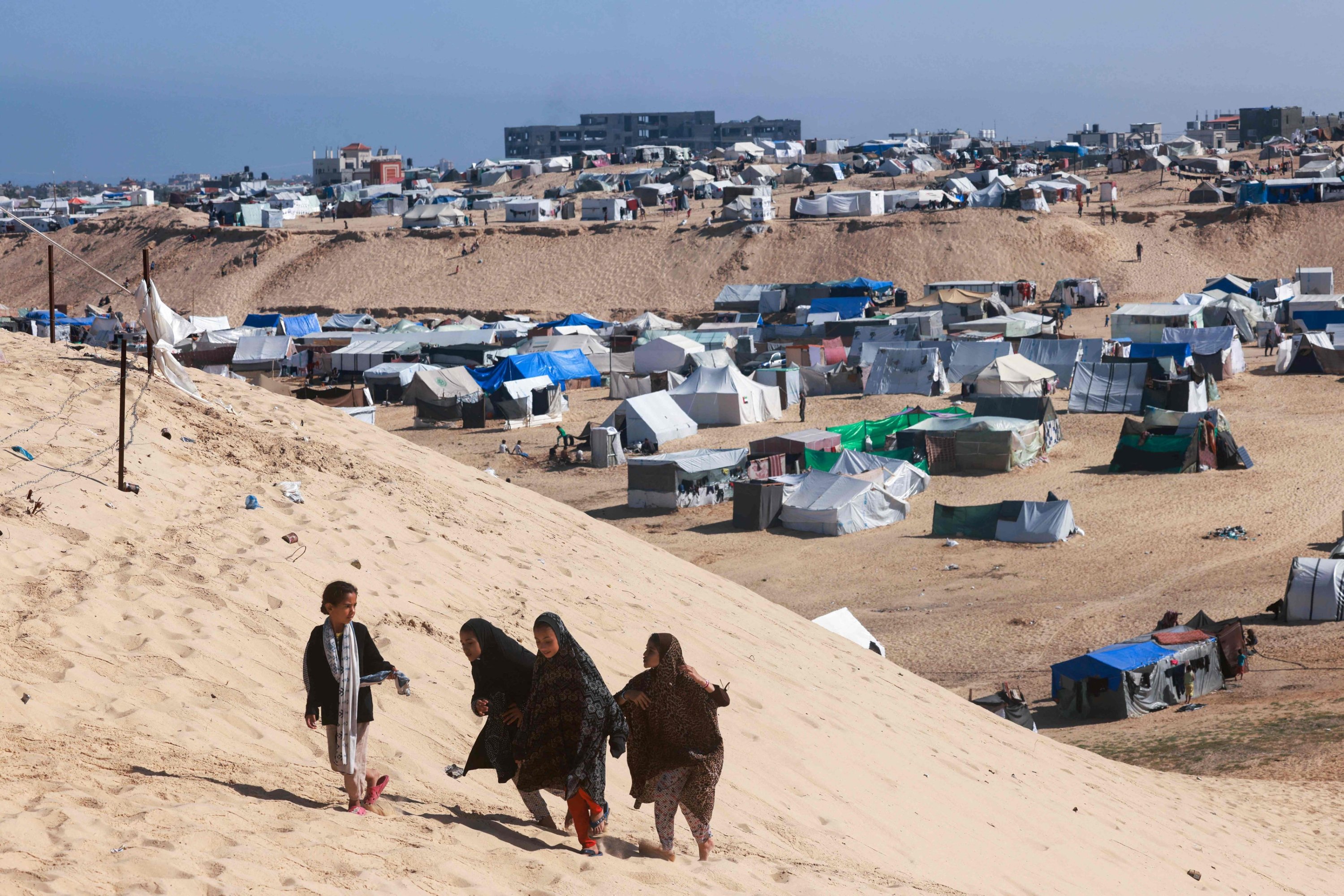© Turkuvaz Haberleşme ve Yayıncılık 2024
The United Nations rights body is mulling a arms embargo resolution on Israel as Tel Aviv's war on Gaza crossed yet another grim milestone Thursday.
The death in the Palestinian enclave reached 33,037, the Health Ministry said, with some 75,668 wounded in the onslaught.
"Israeli attacks killed at least 62 people and injured 91 others in the last 24 hours," the ministry said.
"Many people are still trapped under rubble and on the roads and rescuers are unable to reach them," it added.
Israel has pounded the Palestinian enclave since a cross-border attack by resistance group Hamas, which killed nearly 1,200 people.
The U.N. Human Rights Council, in the meanwhile, will consider a draft resolution calling for an arms embargo on Israel and condemning "the use of starvation of civilians as a method of warfare."
The draft, backed by 18 states, will need 24 votes for a majority on the 47-country council, but it could pass with fewer if there are abstentions.
Israel has long accused the Human Rights Council of bias.
The Israeli war, now in its 181st day, has pushed 85% of Gaza's population into internal displacement amid acute shortages of food, clean water, and medicine, while 60% of the enclave's
infrastructure has been damaged or destroyed, according to the U.N.
Israel stands accused of genocide at the International Court of Justice (ICJ), which last week asked it to do more to prevent famine in Gaza.
The threat to Gaza's aid lifeline comes as all of its 2.4 million people are already struggling to get enough to eat, with famine projected to hit the north soon.
In Gaza City, Palestinians sleeping overnight near an aid delivery spot hoped to secure a bag of flour.
"We wait all night for this flour. We sleep on the streets, in the cold, on the sand, enduring hardship to secure food for our families, especially our young children," one man told Agence France-Presse (AFP) on Wednesday.
"I don't know what else to do or how our lives have come to this."
Since the Oct. 7 Hamas incursion that triggered the conflict, Israel has heavily restricted aid deliveries to the already blockaded territory, with the number of trucks dwindling to a small trickle.
Last week, Israel told the U.N. agency for Palestinian refugees its convoys would no longer be allowed in the north, where people have been consuming fewer than 245 calories per day on average, charity Oxfam said Wednesday.
"The minuscule amount of food represents less than 12% of the recommended daily 2,100 calorie intake needed per person," it said in a statement.
Foreign powers have increased aid airdrops into Gaza to maintain the humanitarian lifeline, while the World Central Kitchen established a maritime route.
Biden instructed the U.S. military to build a floating pier to unload supplies from the sea. State Department spokesperson Matthew Miller vowed that Monday's strike would not deter that plan.
"It will not affect our efforts to stand up the pier to deliver aid through the sea," he told reporters.

The bloodiest-ever Gaza war claimed at least 61 more lives overnight, the health ministry in the Hamas-run territory said on Thursday, with the group's press office reporting Israeli strikes destroyed dozens of homes in Khan Yunis.
The war began with Hamas' Oct. 7 incursion, which resulted in the deaths of about 1,170 Israelis and foreigners.
Israel's retaliatory campaign has killed at least 32,975 people, mostly women and children, according to the Health Ministry in Gaza.
Hamas members also took more than 250 hostages on Oct. 7, and 130 remain in Gaza.
Families of the captives have staged mass protests in Jerusalem and Tel Aviv, heaping pressure on Netanyahu.
"There is one urgent issue, and this is the kidnapped," protester Hadas Zubary, the aunt of hostage Naama Levy, said. "We should ask (for) a deal now."
Talks for a cease-fire and hostage release deal have stalled, however, with Hamas chief Ismail Haniyeh accusing Israel of procrastinating.
Qatar, which is mediating the indirect talks, said Israel has objected to the demand to allow displaced Gazans to return to their homes.
